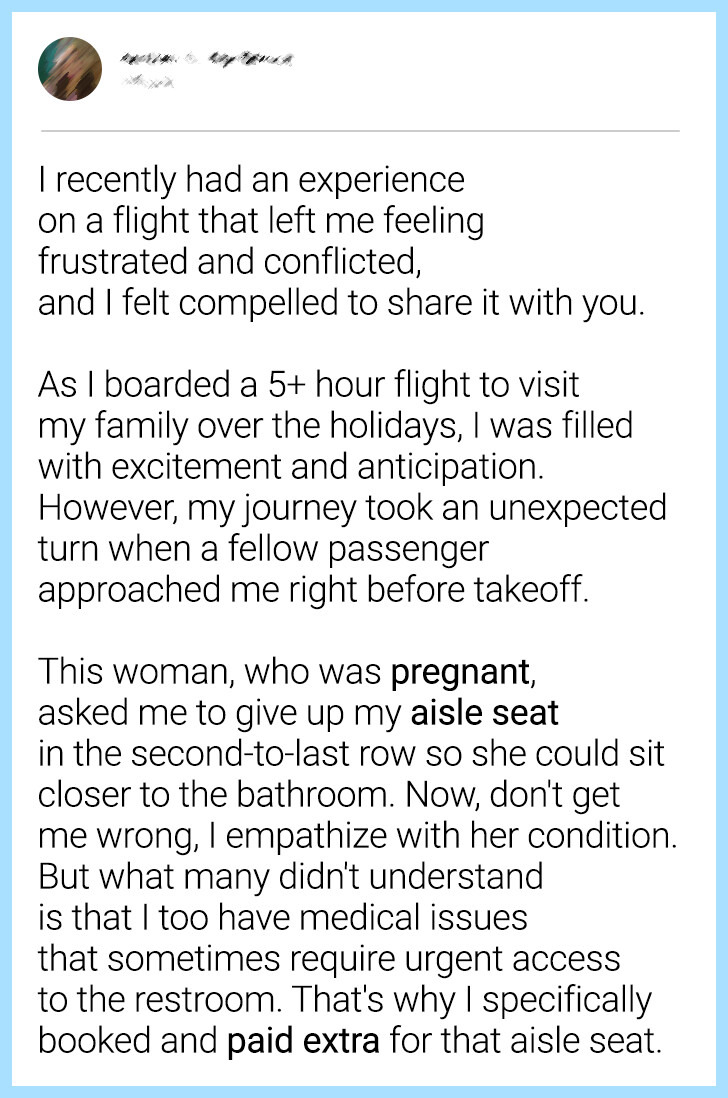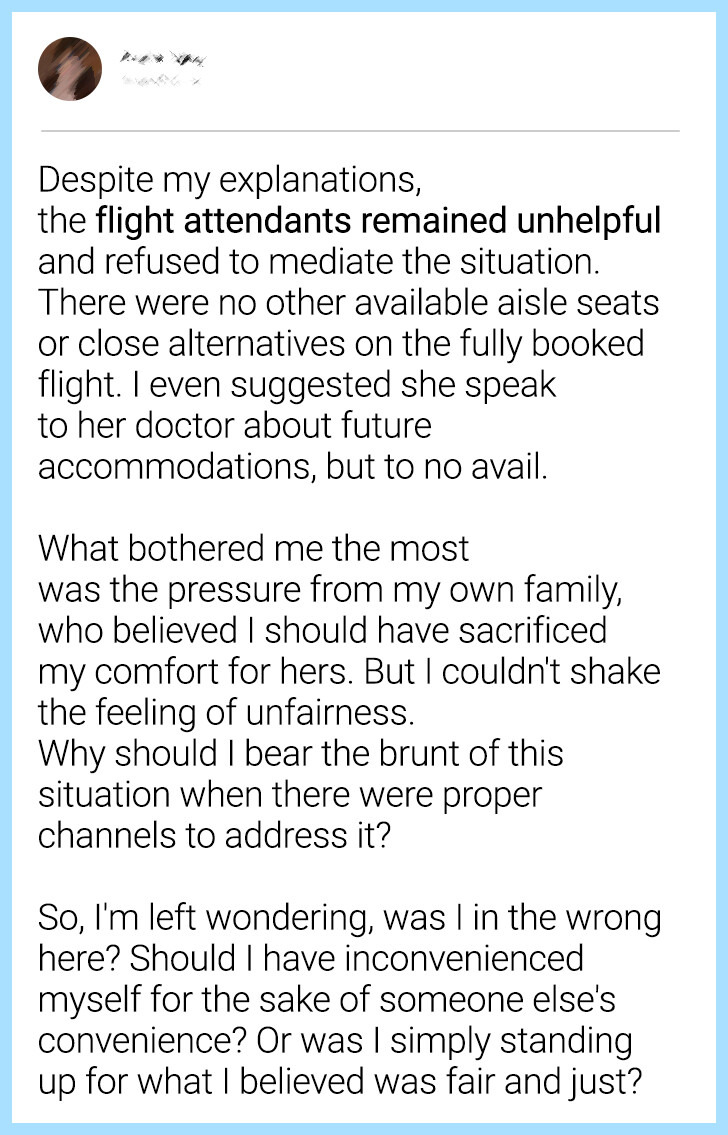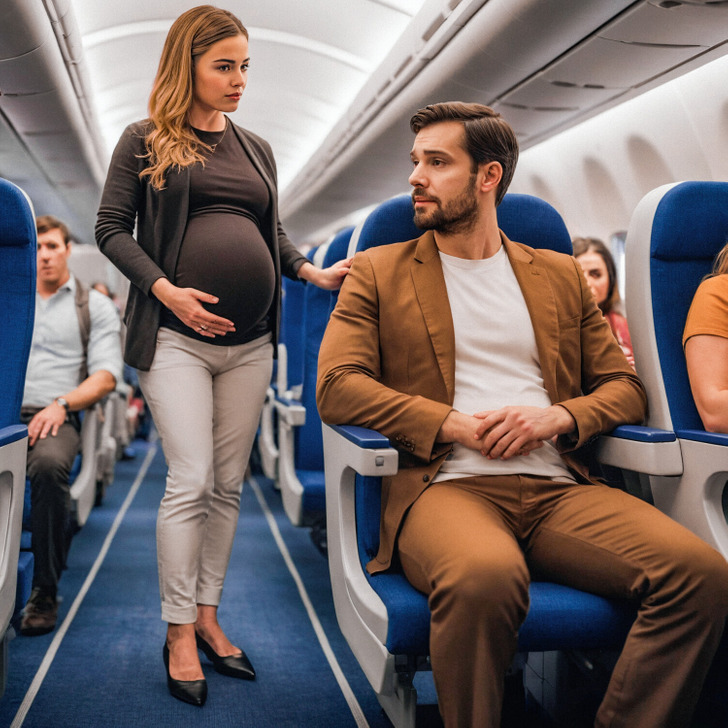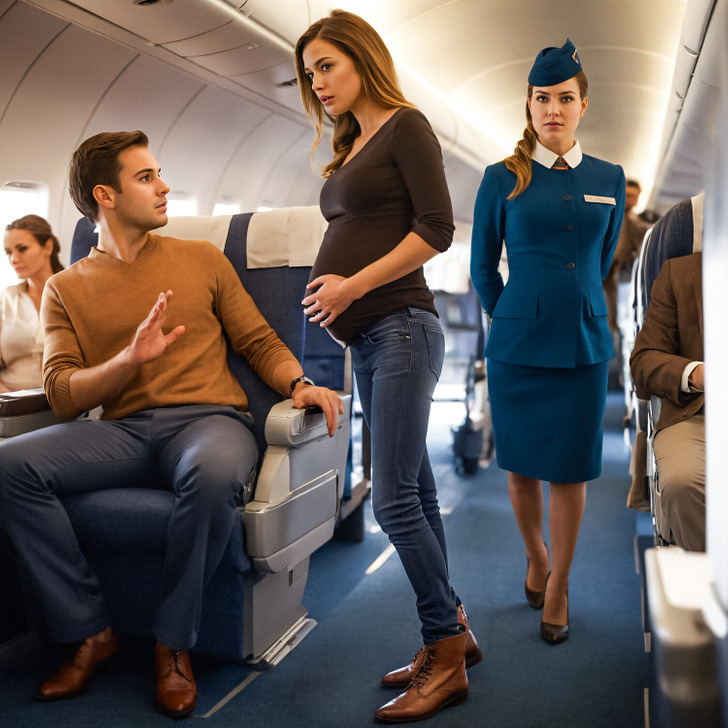
I Didn’t Give Up My Airline Seat to a Pregnant Woman
In the bustling world of air travel, unexpected situations can quickly turn an anticipated journey into a battleground of conflicting interests. Recently, we received a letter from one of our readers recounting a perplexing experience aboard a flight during the holiday season, prompting a reflection on the delicate balance of personal comfort and social responsibility at 35,000 feet.
Our reader embarked on a flight with excitement to reunite with his family for the holidays. However, his journey took an unexpected turn.

It’s worth noting that he had made a special payment for his chosen seat due to his own medical needs, which adds a layer of complexity to the situation. Similarly, the pregnant woman could have potentially arranged for a seat closer to the restroom in advance, considering her condition. This detail underscores the importance of proactive planning and communication, both on the part of passengers and airlines, to mitigate conflicts and ensure the comfort and well-being of all travelers.

It’s conceivable that the pregnant woman may have been feeling uncomfortable or distressed during the flight, which could have contributed to her request for a seat closer to the restroom. However, the lack of communication between passengers, like John, and the flight attendant exacerbated the situation. Without clear communication channels or effective mediation from the airline staff, tensions between passengers remained unresolved, highlighting the need for better protocols to address such conflicts in-flight.
This situation raises poignant questions about the unwritten rules of airplane etiquette. Is there a hierarchy of needs that should be considered in such situations, or are all passengers entitled to equal consideration?

If you were in John’s place, you’d probably get where he’s coming from. If you paid more for a seat because you needed it, it’d be tough to give it up. Wanting to help a pregnant lady is nice, but being fair matters too.
It’s a hard choice between being kind and taking care of yourself. You’d have to think about what’s best, depending on the situation and what other options there are. This situation makes you think about how people act on planes and how it can be tricky.
It’s a conundrum that doesn’t have a clear-cut answer. On one hand, empathy and compassion compel us to assist those in need, particularly vulnerable groups such as pregnant women. On the other hand, personal rights and responsibilities dictate that individuals should not be unduly burdened for the convenience of others, especially when they’ve made prior arrangements to address their own needs.
The flight attendant remained unhelpful.

Amidst the turbulence of conflicting interests, there’s a notable absence of intervention from the flight attendants, whose role traditionally includes ensuring the comfort and safety of all passengers. Despite John’s plea for assistance, the flight attendant on duty remained uninvolved, leaving both parties stranded in a stalemate.
This lack of intervention highlights a systemic challenge in managing delicate situations in-flight and underscores the need for clearer protocols and training to address such scenarios promptly and fairly. When passengers are left to navigate disputes alone, it erodes trust in the airline’s ability to uphold standards of customer service and exacerbates tensions among passengers.
So, we turn to you, our readers, to weigh in on this complex issue. What do you believe was the proper solution in this scenario? Should John have yielded his seat, or was he justified in standing his ground?


